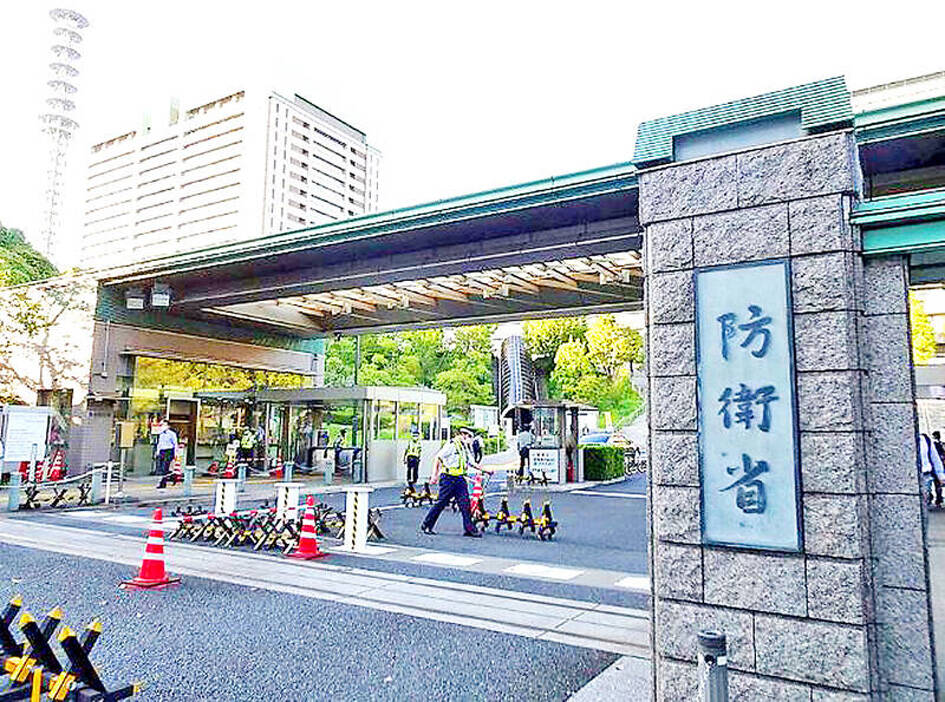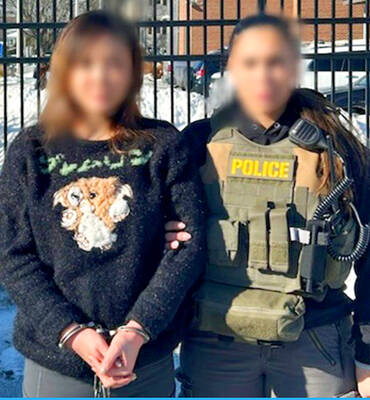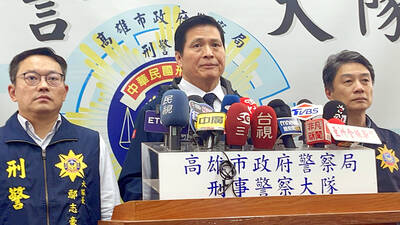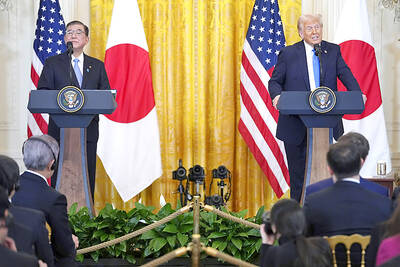Japan has been stepping up military deployments in the west of the country and on islands off its southwest coast due to the increased military threats from China, the Institute for National Defense and Security Research said in a report published on Wednesday last week.
The report, titled The Indo-Pacific Regional Security Situation Assessment Report in 2024, discussed the results of the elections in the Indo-Pacific region last year and how they could affect the region.
One of the chapters in the report, written by the institute’s assistant research fellow Wang Tsuen-yen (王尊彥), analyzes Japan’s “perimeter defense policy” and its approach to public opinion in the northeast Asian nation.

Photo: CNA
“Japan has clearly indicated in both its National Security Strategy and Defense White Paper that its security environment is rapidly deteriorating, with the largest threat coming from China,” Wang wrote.
Wang listed Japan’s military deployment on the islands off its southwest coast from October 2023 to September last year. Tokyo has added a 40-person electronic warfare squad on Yonaguni island and expanded its military base on the island to accommodate a soon-to-be-deployed air defense force.
A surface-to-ship missile unit was also installed on Okinawa Island, as well as an alarm radar to monitor the ships passing through the Miyako Strait, he said.
Japan’s National Defense Strategy said that its long-distance defense capabilities must be “fundamentally bolstered,” he said.
Japan obtained land-based “enhanced Type 12 surface-to-ship missiles” and Tomahawk missiles a year ago and test-fired “high-speed missiles for island defense” to attack enemy ships invading Japan’s outlying islands, he said.
Tokyo’s defense budget plan has allocated funds to build a medium-size transport ship, a small transport ship and motorboats, he said.
The funding would also cover expenses to rent eight ships from the private sector, he said.
Japan has also built 130 ammunition depots and designated 28 airports and seaports to be ready to accommodate military facilities, with most of them being in the west of the country, Wang said.
The Japanese government last year published a new guidebook to build shelters and organize drills, he said.
The Japan Coast Guard has allocated a budget to build a 30,000-tonne patrol ship in case a mass evacuation of people is necessary, Wang said.
A survey conducted by the Japanese Ministry of Foreign Affairs in April last year showed that 58.4 percent of Japanese think Tokyo should respond forcefully to foreign ships intruding in the country’s territorial waters, while 41.4 percent said that the Japanese government should ensure peace and stability of the region and international community, Wang said.
Japanese newspaper the Yomiuri Shimbun also published results of an opinion poll in April last year, showing that 53 percent of the respondents agreed that Japan’s defense budget should be increased, Wang said.
In related news, the Ministry of National Defense yesterday said it is using various strategies to prevent voluntary military recruits from quitting.
The number of voluntarily enlisted personnel dropped to 150,000 as of June last year from 160,000 in 2021, the lowest since 2018.
The ministry attributed the decline to the country’s low birthrate and corporate job offers.
The ministry said it is working on increasing incentives for military personnel to remain in post, such as by ensuring better treatment, adjusting enlistment requirements and raising salaries.

Johanne Liou (劉喬安), a Taiwanese woman who shot to unwanted fame during the Sunflower movement protests in 2014, was arrested in Boston last month amid US President Donald Trump’s crackdown on illegal immigrants, the Criminal Investigation Bureau (CIB) said yesterday. The arrest of Liou was first made public on the official Web site of US Immigration and Customs Enforcement (ICE) on Tuesday. ICE said Liou was apprehended for overstaying her visa. The Boston Field Office’s Enforcement and Removal Operations (ERO) had arrested Liou, a “fugitive, criminal alien wanted for embezzlement, fraud and drug crimes in Taiwan,” ICE said. Liou was taken into custody

ON PAROLE: The 73-year-old suspect has a criminal record of rape committed when he was serving in the military, as well as robbery and theft, police said The Kaohsiung District Court yesterday approved the detention of a 73-year-old man for allegedly murdering three women. The suspect, surnamed Chang (張), was arrested on Wednesday evening in connection with the death of a 71-year-old woman surnamed Chao (趙). The Kaohsiung City Police Department yesterday also unveiled the identities of two other possible victims in the serial killing case, a 75-year-old woman surnamed Huang (黃), the suspect’s sister-in-law, and a 75-year-old woman surnamed Chang (張), who is not related to the suspect. The case came to light when Chao disappeared after taking the suspect back to his residence on Sunday. Police, upon reviewing CCTV

TAIWAN ADVOCATES: The resolution, which called for the recognition of Taiwan as a country and normalized relations, was supported by 22 Republican representatives Two US representatives on Thursday reintroduced a resolution calling for the US to end its “one China” policy, resume formal diplomatic ties with Taiwan and negotiate a bilateral Taiwan-US free trade agreement. Republican US representatives Tom Tiffany of Wisconsin’s 7th Congressional District and Scott Perry of Pennsylvania’s 10th District were backed by 22 Republican members of the US House of Representatives. The two congressmen first introduced the resolution together in 2021. The resolution called on US President Donald Trump to “abandon the antiquated ‘one China’ policy in favor of a policy that recognizes the objective reality that Taiwan is an independent country, not

The US-Japan joint statement released on Friday not mentioning the “one China” policy might be a sign that US President Donald Trump intends to decouple US-China relations from Taiwan, a Taiwanese academic said. Following Trump’s meeting with Japanese Prime Minister Shigeru Ishiba on Friday, the US and Japan issued a joint statement where they reaffirmed the importance of peace and stability in the Taiwan Strait and support for Taiwan’s meaningful participation in international organizations. Trump has not personally brought up the “one China” policy in more than a year, National Taiwan University Department of Political Science Associate Professor Chen Shih-min (陳世民)